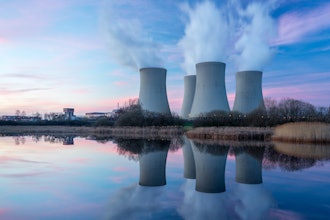A recently released study projects solar energy costs will be able to compete with those of traditional electricity generation in most states within the next 15 years.
The report from Scottish energy consulting firm Wood Mackenzie -- titled, "Is solar the next shale?" -- asks whether solar-generated electricity is set to experience a boom similar to the dramatic expansion of U.S. oil and natural gas production in recent years.
The analysis suggests that due to dramatic declines in the price of solar modules, along with market and regulatory factors, the economics of solar energy have already reached "grid parity" -- or matching the costs of conventional sources -- in some regions of the U.S.
Moreover, with solar modules expected to see capacity gains through future technological advances, the report projects 19 states to reach grid parity by 2020, with that number doubling to 38 by 2030.
Although the report also projects solar's share of the nation's electricity to rise to just 6 percent by 2035, that would be a dramatic increase over the current 1 percent share.
"During our analysis, we identified many evolutionary parallels to shale and believe that solar has the potential to make the same scale of impact across markets," the authors wrote.
The report, however, cautioned the current energy marketplace is not equipped to handle a substantial increase in solar-generated energy, and that other forms would still be needed to meet energy needs as utilities and regulators adjust.
Analysts warned even a modest increase in solar power could hurt conventional production by reducing both power plant output and the overall price of energy. That could wreak havoc on the entire energy marketplace.
"There is a circular logic: the more solar you build, the worse you make fossil fuels," said Wood Mackenzie analyst Prajit Ghosh. "Adding more solar will ultimately hurt solar too, but it hurts gas more.”
Others also noted lawmakers had laid the statutory groundwork for the country's fracking boom long before drilling began across large swaths of shale oil deposits nationwide, and that similar efforts largely haven’t been made for solar energy.






















